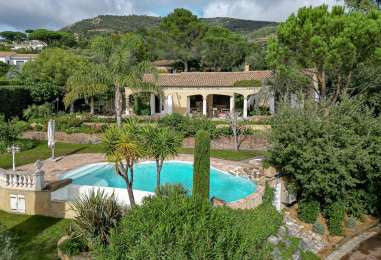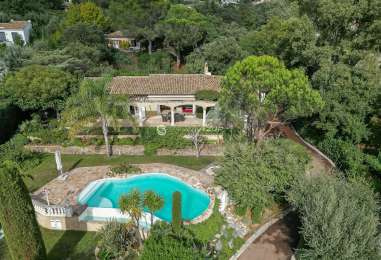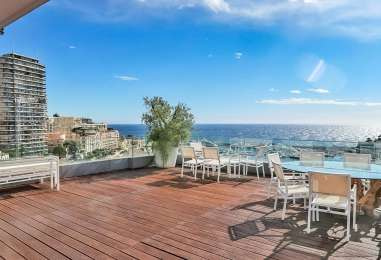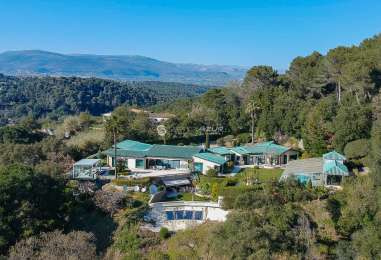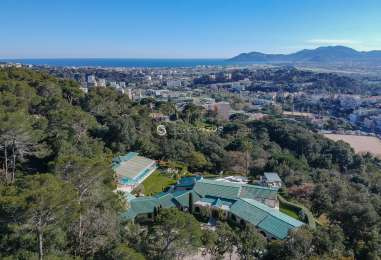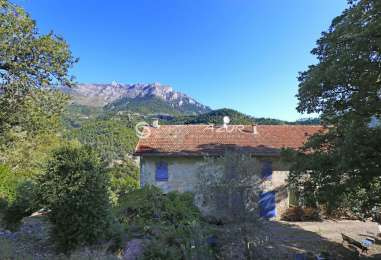Introduction
In the realm of French real estate, many buyers opt for property acquisition through SCI companies. Let's delve deeper into this method of real estate purchase and explore how acquiring property in the name of an SCI offers distinct advantages.
Overview
SCI (Société Civile Immobilière)
An SCI, or Société Civile Immobilière, is a legal non-commercial company designed for real estate ownership. This type of company enables family members or a group of individuals to become co-owners of one or several real estate properties, distributing ownership shares as they see fit. SCI is exceptionally adaptable, catering to those seeking additional income through property rentals or a progressive inheritance plan.
Creating an SCI: Procedures and Requirements
The establishment of an SCI typically occurs during the real estate purchase process, between the preliminary and final sales contract. A notary often handles the administrative and registration formalities. They create the company's articles of incorporation, publish a notice of SCI registration in the legal journal JAL, register the company with the Chamber of Commerce, and file the company's articles with the tax authorities. Once completed, a registration certificate is issued, containing comprehensive information about the company and its founders, available upon request to third parties.
Functioning and Ownership Structure
Number of individuals required to establish
Establishing an SCI requires the involvement of at least two individuals, who can be either physical or legal entities. There are no set limits on the number of owners, nor nationality restrictions, unlike other corporate forms. Even minors can become SCI members since the company isn't commercially oriented. An SCI can exist for up to 99 years.
Diversity of members and their rights
The SCI's articles of incorporation dictate its functionality. These documents must be written and specify the company's name and legal address, which can be the property's location or another address provided by another company. The purpose of the SCI should not be of a commercial nature. Founders' information and the distribution of shares and contributions are outlined, and contributions can vary, including monetary or property-based contributions. Property contributions should be noted as they may trigger taxation upon transfer.
Inheritance and Gifting through
Transferring shares within an SCI presents tax advantages. Each child is entitled to a €100,000 exemption every 15 years when receiving shares. To avoid exceeding this threshold, it's advisable to make rounded contributions (e.g., €100 or €1,000). Parents can retain "ususfruct" rights, allowing them to use, rent, and generate income from the property while transferring ownership to their children. Upon the parents' passing, these rights are nullified, and the children inherit the shares without inheritance tax obligations.
SCI Taxation
An SCI is recognized as a transparent entity, thereby placing the tax obligation on the founders. Typically, SCI income from long-term, unfurnished rentals is subject to income tax. For French residents, the tax rate follows a progressive scale from 11% to 45%, with an additional 17.2% in social contributions. Non-residents face a flat tax rate of 30%, plus 17.2% in social contributions. However, if a non-resident is part of a social security scheme in another EU country, they are subject to a lower solidarity levy of 7.5%.
Each member of the SCI must declare their portion of rental income based on their share of the SCI's capital. This income is then combined with their other earnings and reported on their individual tax return. The taxation process mirrors that of direct property ownership. It's important to note that income retained within the SCI for future investments is also taxable. Capital gains from selling real estate or SCI shares incur a tax of 19%, plus 17.2% social contributions, totaling 36.2%.
Tax exemptions are available based on the duration of ownership: a partial exemption after five years and complete exemption after thirty years. Buyers of SCI shares are obliged to pay a 5% registration fee plus a departmental tax.
SCI founders have the option to choose corporate profit taxation. This irreversible decision allows for deductions including management costs and property depreciation, potentially reducing taxable income. If the SCI is profitable, earnings up to €38,120 are taxed at a reduced 15% rate, earnings between €38,120 and €500,000 at 25%, and any amount over €500,000 at 33.33%. Choosing dividends subjects members to a 40% tax allowance on these earnings, with the remaining 60% taxed as income from movable capital. However, this corporate tax choice can complicate property sales, as it excludes members from long-term ownership benefits. This option is advantageous for members with high incomes who do not plan to sell their properties in the near future.
Compliance and Formalities for Managing an SCI
Annual general meetings and record-keeping
Properly managing an SCI entails certain obligations, such as organizing an annual general meeting and maintaining written records of proceedings. For SCI entities subject to income tax, maintaining simplified accounting records using tools like Excel is advisable. However, those subject to corporate tax must maintain proper accounting.
Banking and financial management
All income and expenses should flow through an SCI's dedicated bank account. Failing to adhere to these rules may result in financial penalties imposed by tax authorities.
Monaco SCI: A Unique Alternative
Overview of Monaco SCI
In contrast to French SCI companies, Monaco SCI companies offer a distinctive approach to real estate ownership. Acquiring property in France through a Monaco-based SCI involves a registration process that closely mirrors that of its French counterpart. However, there are key distinctions worth noting. The legal address of a Monaco SCI must be situated within Monaco itself, often provided by a Monaco-based company. The annual cost of renting a legal address in Monaco for an SCI is approximately 700–1500 euros. Notably, information about Monaco-based SCI companies and their owners remains confidential, although it may be disclosed to government authorities, such as the French tax administration.
Differences Between French and Monaco SCIs
Monaco SCIs introduce unique capabilities, such as the ability to hold movable assets in addition to real estate. When more than 50% of an Monaco SCI's assets consist of movable property, the transfer of shares under inheritance can, in specific cases, be subject to Monaco's inheritance tax. For instance, when transferring shares from parents to children, Monaco imposes a zero-rate inheritance tax (compared to a maximum of 45% in France), while transfers to third parties may incur a 16% tax (compared to 60% in France). Other taxes applicable to company owners, including residence tax, property tax, wealth tax, income tax, and capital gains tax on the sale of shares, remain consistent with the French SCI framework.
Conclusion
This comprehensive overview highlights the numerous advantages of SCI companies in the realm of French real estate. They offer flexibility, tax benefits, and simplified inheritance and gifting options. Additionally, the option of a Monaco-based SCI adds a layer of versatility to this approach. Understanding these benefits can significantly enhance one's real estate investment strategy in France.


